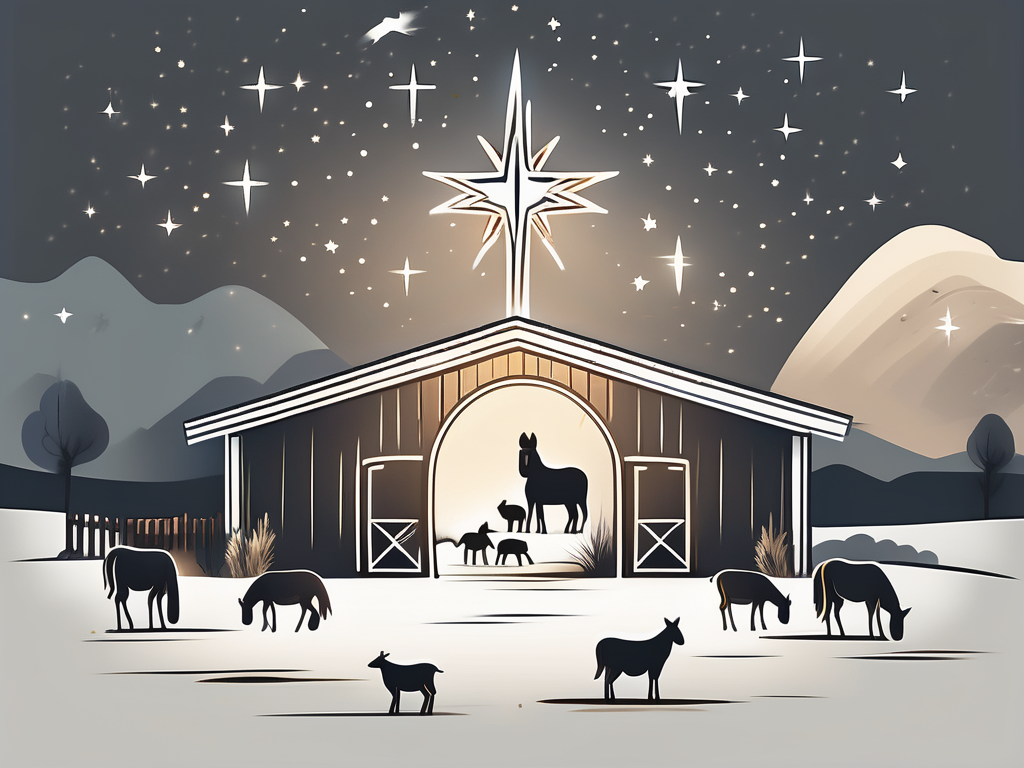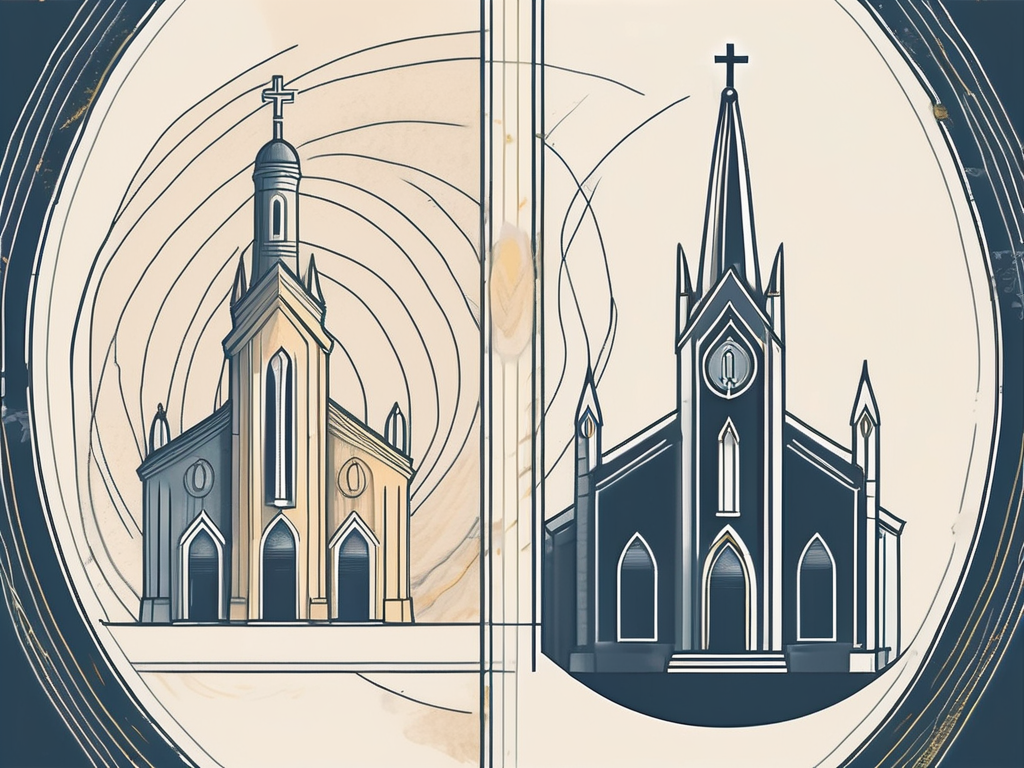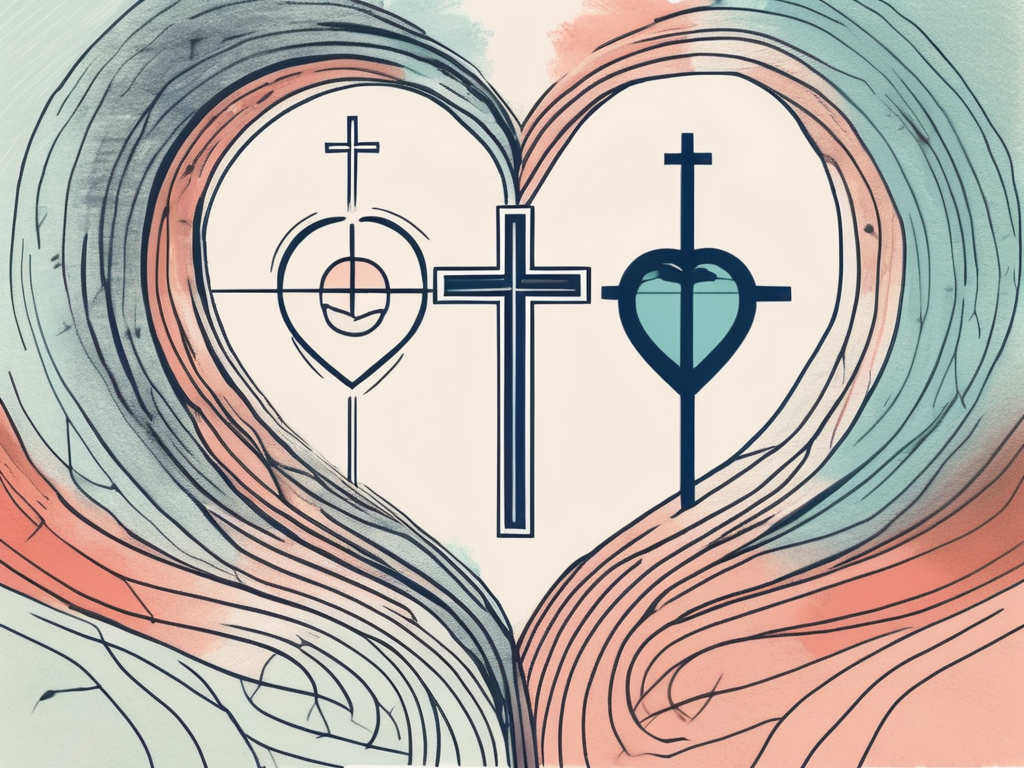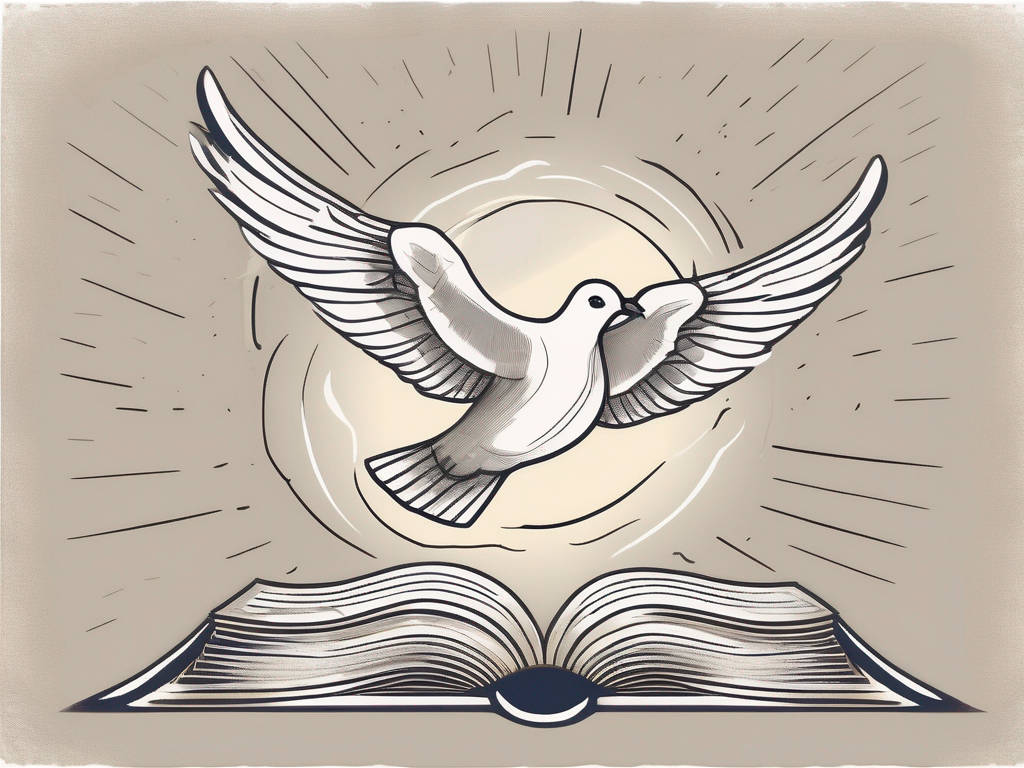Christianity, one of the world’s largest religions, has a rich and complex history that spans over two millennia. This article aims to provide a concise overview of Christianity’s timeline, from its humble beginnings to its evolution in the modern era.
The Birth of Christianity
At the heart of Christianity is the life and teachings of Jesus Christ, the central figure worshipped by Christians worldwide. Born in Bethlehem around 4 BCE, Jesus grew up in Nazareth and began his public ministry around the age of 30.
During his ministry, Jesus preached about love, compassion, and the Kingdom of God. He performed miracles, such as healing the sick and raising the dead, gaining a loyal following of disciples.
Jesus’ teachings were revolutionary, challenging established religious and societal norms. He emphasized the importance of loving one’s neighbor, forgiveness, and the pursuit of spiritual truths. His message attracted not only the common people but also the attention of Jewish religious leaders.
Jesus’ parables, such as the prodigal son and the good Samaritan, conveyed profound moral lessons and continue to resonate with believers today.
As Jesus’ popularity and radical teachings grew, so did the opposition from the Roman authorities. The Roman Empire, known for its strict control and intolerance towards dissent, viewed Jesus as a potential threat to their power. The religious leaders, fearing that Jesus’ teachings would undermine their authority, also became increasingly hostile towards him.
Eventually, the tension reached its peak, leading to Jesus’ arrest, trial, and crucifixion in Jerusalem under the order of Pontius Pilate. This event, known as the Crucifixion, occurred around 30 CE.
The Crucifixion was a brutal and agonizing form of execution, reserved for the worst criminals. Jesus’ crucifixion was a public spectacle, intended to serve as a deterrent to anyone who dared challenge the Roman authority. It was a dark and sorrowful moment for Jesus’ followers, who had placed their hopes in him as the Messiah.
However, three days later, Jesus’ followers claimed he was resurrected, an event that became the cornerstone of Christian faith. The resurrection of Jesus is seen as a miraculous event, demonstrating his divine nature and power over death. It is a belief that sets Christianity apart from other religions, offering believers the hope of eternal life.
The resurrection of Jesus brought immense joy and renewed hope to his disciples. They became witnesses to this extraordinary event, spreading the message of Jesus’ resurrection far and wide. This message of hope and salvation continues to inspire and transform the lives of millions of people around the world.
Christianity, born out of the life, teachings, crucifixion, and resurrection of Jesus Christ, has since grown into one of the world’s largest religions. It has shaped the course of history, influencing art, literature, philosophy, and countless lives throughout the centuries.
Today, Christianity continues to be a source of comfort, guidance, and inspiration for believers, offering a path to salvation and a relationship with God through Jesus Christ.
The Early Christian Church
Following Jesus’ death and resurrection, his apostles became the primary leaders of the early Christian movement. This period, known as the Apostolic Age, saw the spread of Christianity beyond Jerusalem and into the wider Roman Empire.
The Apostolic Age was a time of great significance and transformation for the early Christian Church. The apostles, who had been personally chosen and taught by Jesus, took on the responsibility of continuing his mission and spreading his teachings to the world. They traveled tirelessly, facing numerous challenges and obstacles along the way.
One of the most prominent figures of the Apostolic Age was the apostle Paul. Originally a persecutor of Christians, he underwent a profound conversion and became one of the most influential figures in the early Christian movement. Paul’s missionary journeys throughout the Roman Empire played a pivotal role in the spread of Christianity, as he established Christian communities and preached the message of Jesus to both Jews and Gentiles.
The early Christians faced immense persecution for their beliefs. In a society deeply rooted in pagan traditions and worship, their devotion to a monotheistic faith centered around Jesus Christ was seen as a threat to the established order. Despite the dangers they faced, the early Christians remained steadfast in their faith, gathering in secret and sharing the message of Christ with great courage.
The Spread of Christianity in the Roman Empire
As Christianity continued to grow, it faced both acceptance and persecution. The conversion of Emperor Constantine to Christianity in the early 4th century CE marked a significant turning point in the history of the faith. With the emperor’s support, Christianity gained official recognition and favor, leading to a period of relative peace and stability for the Church.
However, the spread of Christianity throughout the Roman Empire was not solely due to imperial support. The invention of the codex, a precursor to the modern book, played a crucial role in making the scriptures more easily accessible to a wider audience. Unlike the scroll, which was cumbersome and difficult to navigate, the codex allowed for easier reading and facilitated the widespread distribution of religious texts.
With the codex in hand, Christian missionaries and scholars were able to travel far and wide, carrying the message of Jesus to distant lands. The scriptures, previously confined to the hands of a few, were now available to a broader audience, enabling the rapid spread of Christianity.
By the end of the 4th century, Christianity had become the dominant religion within the Roman Empire. Its influence permeated all aspects of society, from politics to culture, forever shaping the course of history. The early Christian Church, born out of the Apostolic Age, had triumphed over adversity and established itself as a powerful force that would continue to shape the world for centuries to come.
Christianity in the Middle Ages
The Middle Ages saw significant developments in Christianity, alongside complex political and religious conflicts.
Christianity in the Middle Ages was a time of great change and upheaval. It was a period marked by the rise of powerful empires, the spread of Christianity to new territories, and the emergence of new theological and philosophical ideas.
One of the pivotal events in Christian history was the Great Schism of 1054. This split resulted in the division of Christianity into the Western Catholic Church and the Eastern Orthodox Church. The separation still exists to this day, with each branch following its distinct theological and liturgical traditions.
The Great Schism had a profound impact on the development of Christianity in the Middle Ages. It not only led to a division within the faith but also sparked intense theological debates and conflicts. The Western Catholic Church, centered in Rome, became the dominant force in Western Europe, while the Eastern Orthodox Church, centered in Constantinople, held sway in the Byzantine Empire and the eastern regions.
During the Middle Ages, the Crusades emerged as a series of religious and military campaigns to reclaim the holy land from the Muslims. While initially motivated by religious fervor, the Crusades had far-reaching consequences, including cultural exchanges between East and West, economic growth, and the legacy of conflict between Christianity and Islam.
The Crusades were a complex phenomenon that involved not only religious motivations but also political and economic considerations. They brought together people from different regions and backgrounds, creating a rich tapestry of cultures and ideas. The Crusaders encountered new civilizations, such as the Byzantine Empire and the Islamic world, and were exposed to new ideas, technologies, and trade routes.
Moreover, the Crusades had a lasting impact on the relationship between Christianity and Islam. The conflicts and tensions that arose during this time continue to shape the modern world, with echoes of the Crusades still felt in contemporary debates and conflicts.
The Protestant Reformation
The 16th century witnessed the rise of the Protestant Reformation, spearheaded by Martin Luther and other reformers.
The Protestant Reformation was a significant movement that forever changed the course of Christianity and had a profound impact on society as a whole. It was a time of great religious and social upheaval, as people began to question the authority of the Catholic Church and seek a more personal and direct relationship with God.
Martin Luther and the 95 Theses
Luther, a German monk and theologian, became disillusioned with the corruption he witnessed within the Catholic Church. He saw the sale of indulgences, which were essentially pardons for sins, as a blatant abuse of power and a distortion of true Christian teachings.
In 1517, Luther famously posted his 95 Theses on the door of the Castle Church in Wittenberg, Germany. These theses were a list of arguments and criticisms against the practices of the Catholic Church, particularly the sale of indulgences. This act of defiance marked the beginning of the Reformation and set off a chain reaction that would forever alter the religious landscape of Europe.
Luther’s actions sparked a widespread movement that emphasized personal faith, scriptural authority, and the priesthood of all believers. His teachings spread like wildfire, resonating with people who were seeking a more authentic and meaningful religious experience.
As Luther’s ideas gained traction, they were disseminated through the printing press, a relatively new invention at the time. This allowed his writings to reach a wider audience and played a crucial role in the rapid spread of Protestantism.
The Protestant Reformation gave birth to various denominations, each with its interpretation of Christian doctrine. Lutheranism, Calvinism, and Anglicanism were among the most prominent branches that emerged during this period. These denominations not only challenged the authority of the Catholic Church but also introduced new theological concepts and practices.
The Impact of the Reformation on Christianity
The Reformation transformed Christianity in profound ways, leaving an indelible mark on both religious and secular spheres. One of the most significant consequences of the Reformation was the outbreak of religious wars, as Catholic and Protestant forces clashed in a struggle for dominance.
These wars, such as the Thirty Years’ War, resulted in immense suffering and loss of life, but they also paved the way for the recognition of religious freedom and tolerance. The idea that individuals should have the right to practice their own faith without persecution gained traction during this period and laid the groundwork for the modern concept of religious liberty.
Furthermore, the Reformation led to the growth of Protestantism as a distinct branch of Christianity. Protestant churches sprang up across Europe, offering an alternative to the Catholic Church and attracting followers who were dissatisfied with the status quo.
In addition to the growth of Protestantism, the Reformation also brought about the establishment of new religious institutions. Monasteries and convents, which had been central to Catholic religious life, were dissolved, and new forms of religious communities emerged. These communities, such as the Anabaptists and the Huguenots, played a crucial role in shaping the religious landscape of Europe.
Moreover, the Reformation laid the foundations for concepts such as religious freedom and individual interpretation of the Bible. Luther’s emphasis on the priesthood of all believers challenged the hierarchical structure of the Catholic Church and empowered individuals to read and interpret the Bible for themselves. This shift in religious authority had far-reaching implications, not only for Christianity but also for the development of modern society.
In conclusion, the Protestant Reformation was a watershed moment in the history of Christianity. It challenged the authority of the Catholic Church, sparked religious wars, and gave rise to new denominations and religious institutions. The Reformation also laid the groundwork for concepts such as religious freedom and individual interpretation of the Bible, which continue to shape our understanding of faith and society today.
Christianity in the Modern Era
In more recent centuries, Christianity has continued to evolve and adapt to changing social, cultural, and political landscapes.
The Second Vatican Council
In the early 1960s, the Catholic Church held the historic Second Vatican Council, a gathering of bishops that aimed to modernize the Church and foster dialogue with other Christian denominations, as well as with other religions. The council resulted in significant reforms, including changes to liturgy and a renewed emphasis on ecumenism.
Christianity in the 21st Century
Christianity today encompasses a vast spectrum of beliefs, practices, and denominations, reflecting the diversity of cultures and the complexities of the modern world. While Christianity remains firmly rooted in its historical foundations, it continues to adapt to contemporary issues and challenges, striving to spread its message of love, peace, and hope.
In conclusion, the history of Christianity is a tapestry woven with the life and teachings of Jesus Christ, the remarkable journey of the early Christian Church, profound theological and political changes throughout the ages, and ongoing adaptations in the modern era. As we reflect on this concise timeline of Christianity, we gain a deeper understanding of the faith that has influenced countless lives and shaped the course of human history.












